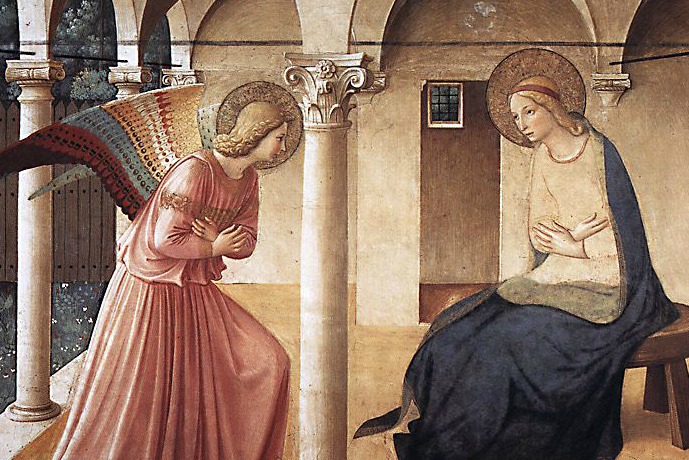The Catechism begins its discussion of prayer with a flat assertion: “Humility is the foundation of prayer” (§2559). Many people resist the term “humility,” either because they mistake it for humiliation, or they consider humility a sign of weakness, or—to borrow a cliché much in use today—a symptom of low self-esteem. Humility, however, is that virtue by which, as St. Thomas Aquinas rightly says, we recognize the correct relationship between a person and God. Let us, for a moment, consider a person who has the explicit intention to pray. Think of that instant when, before even articulating words or thoughts, this person kneels down or sits in a church or stands quietly in a garden with the desire to communicate with God. What does that gesture mean?
At a minimum it signifies that the person desires to address an Other. In that simple gesture, the person also indicates a longing to surrender his or her self-sufficiency to that Other. It is in that very act of self-surrender that humility is made manifest. Because by calling on God, one simultaneously speaks a word in which personal autonomy gives way to relationship and communion with God. Before even the first word is uttered in prayer, we turn away from self-autonomy through a new commitment of our heart and mind to God. Humility, thus, is not groveling or self-hatred, but an acknowledgment that we are radically dependent on God. Thus, the intention to pray is in itself a prayer.
In this same opening section on prayer, the Catechism links humility with the heart. The word “heart” is used over a thousand times in the Bible, and almost never is it used to refer to the muscle that pumps blood through the circulatory system. Rather, the heart functions as a metaphor to describe the inmost part, the locus of the deepest desires of a human being. Jesus taught this intimate character of the heart perfectly: “‘For where your treasure is, there your heart will be also’” (Mt 6:21). What we most desire, what we most want to achieve, will tell us exactly who we are. Earlier in Matthew 6 Jesus excoriates the hypocrites who make a huge display of prayer “so that they may be seen by others” (Mt 6:5). Note the point Jesus makes: their prayer, while addressed to God, is not what they most desire. Rather, they seek the esteem of the crowd.
Authentic prayer is expressed “from the heart” in that it is directed to God not for adulation or preservation of the self, but out of a humble recognition of our need for the sustaining power of God in our lives. Implicit in every authentic prayer is an act of contrition—a willingness to say that we are not so fully independent and so powerful that we can or should act as if we can sustain ourselves.
Let me make a final point as we pursue the theme of praying with a humble heart. Every gesture of prayer is also an act of faith and vice versa. Every time we say “I believe” in the liturgy we are, if we are sincere, both confessing faith and uttering a prayer. Thomas Merton in his Secular Journal described having a powerful experience of God when he heard school children in a Havana Church sing out in unison “Yo creo!”—“I believe!” Conversely, every time we turn to God in prayer, we confess the central claims of Christian faith: that God is there, that God hears us, and that God sustains us in our needs. At times it is difficult to pray. At moments, it is trying to believe. But in such moments, we can console ourselves with those most powerful words on prayer written by the Apostle Paul: “Likewise the Spirit helps us in our weakness; for we do not know how to pray as we ought, but that very Spirit intercedes with sighs too deep for words. And God, who searches the heart, knows what is the mind of the Spirit, because the Spirit intercedes for the saints according to the will of God” (Rom 8:26–27).
When we scrutinize Paul’s words closely, we discover another radical truth: prayer is not a simple act of the will by which we furrow our brow and will our words to God. Like faith, prayer is a grace freely given to us. For the “Spirit intercedes” and “God searches the heart.” This is a remarkable, startling truth to discover: when we pray it is really God who prays in us. The humble heart turned to God is already at prayer before the first human word comes from our lips.
![]()
Editors’ Note: This article originally appeared in Church Life: A Journal for the New Evangelization, volume 1, issue 1.
Featured Image: Fra Angelico, Annunciation (c. 1438-45); courtesy of Carul Mare; CC-BY-2.0



